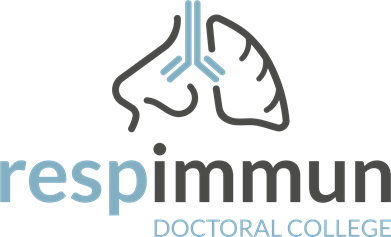
respimmun.at
• Böhm
• Heinemann
• Höfler
• Kargl
• Kwapiszewska
• Leithner
• Marsche
Marsh ⏩
•Moissl-Eichinger
• Olschewski A
• Strobl
• Heinemann
• Höfler
• Kargl
• Kwapiszewska
• Leithner
• Marsche
Marsh ⏩
•
• Olschewski A
• Strobl


The RESPImmun Faculty

|
Leigh MARSH, PhDCompartment-specific immunophenotyping in chronic obstructive pulmonary disease |
|
Ludwig Boltzmann Institute for Lung Vascular Rearch, Medical University of Graz,
Neue Stiftingtalstraße 6/VI, A-8010 Graz;
| |
| websites: [RESPImmun] [LBG] | |
| • Profile ⏬ • Curriculum vitae • PhD students • Grants • Publications | |
Leigh Marsh is a molecular biologist and geneticist who concentrates his research on the inflammatory processes underlying CLD and PH. He is particularly interested in the functional cross-talk between structural cells and recruited inflammatory cells, and how oxidative stress can influence these cellular interactions. He possesses a wide-ranging experience in animal models of CLD and relevant physiological read-outs. Within RESPImmun he collaborates with Julia Kargl, Gunther Marsche, Peter Valentin Tomazic and Ákos Heinemann on inflammatory cell crosstalk, with Eva Böhm on mechanisms of allergic asthma and Grażyna Kwapiszewska molecular signaling.
Project
Project 6: Compartment-specific immunophenotyping in chronic obstructive pulmonary diseaseCo-PI: Alexander Avian
Background
Chronic obstructive pulmonary disease (COPD) is a highly heterologous disease with several know phenotypes; these can be distinguished by the pathology, degree of inflammation, or response to treatment. Similar to asthma, COPD is characterised by an upper airway obstruction and chronic inflammation; however, COPD patients also suffer from loss of the small conducting airways, and chronic destruction of the lung parenchyma resulting in emphysema. The presence of pulmonary hypertension (PH) in patients with COPD is associated with even worse survival. We have previously shown that the idiopathic form of PH (IPAH) presents with a distinct inflammatory cell landscape; however, there is only limited knowledge to which extent the inflammatory profile in COPD overlaps with IPAH, and contributes to vascular remodelling.Hypothesis and objectives
Here, we hypothesize that inflammatory cell profiles in COPD are associated with vascular remodelling and can discriminate between different COPD phenotypes. We will determine the inflammatory cell landscape in COPD with and without associated PH and its relationship to vascular remodeling, functionally characterize regulated inflammatory cell populations and determine their implications for vascular remodeling.Methodology
Years 1– 2: The student will make extensive use of flow cytometry and computational flow cytometry to characterize the inflammatory cell profile in COPD patients. Multivariate analysis including unbiased dimensionality reduction (Input from collaborations within the RESPImmun programme
- Peter Tomasic and Eva Böhm: overlapping inflammatory cells and mediators between COPD, asthma and allergic rhinitis will be characterized.
- Julia Kargl will provide support in flow cytometric analysis and comparison of profiles with her tumor cohort.
- Horst Olschewski will provide expertise in lung physiology and clinical characterization of COPD patients and plasma samples.
- Gerald Höfler will provide expertise in lung pathology in the characterization of COPD patents.
- Christine Moissl-Eichinger will support the project with microbiome analysis and Grażyna Kwapiszewska with molecular read-outs.